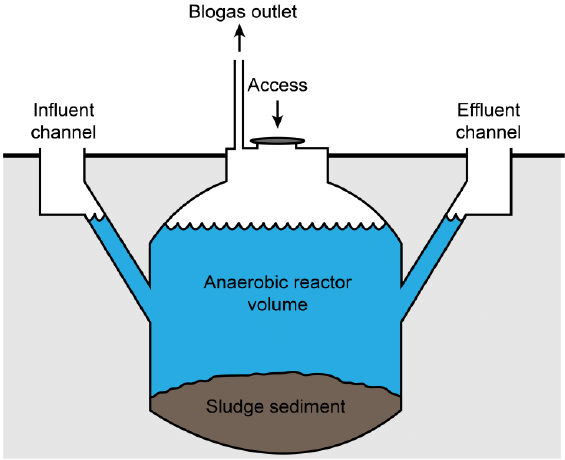BioGas is a renewable energy source that is produced from organic matter such as agricultural waste, food waste, sewage, and other organic materials. It is a versatile energy source that can be used for heating, electricity generation, and transportation fuel.
BioGas is produced through a process called anaerobic digestion, which involves the breakdown of organic matter in the absence of oxygen. During this process, microorganisms break down the organic matter and produce a mixture of gases, including methane, carbon dioxide, and small amounts of other gases.
The methane in BioGas can be used as a replacement for natural gas and can be used to generate electricity or heat. The carbon dioxide produced during the digestion process can be captured and used for various applications, such as carbonation in beverages.
Benefits of BioGas
BioGas has several advantages over other renewable energy sources. It is a reliable and consistent energy source that can be produced year-round, regardless of weather conditions. It is also a flexible energy source that can be used in a variety of applications, from small-scale household cooking to large-scale electricity generation.
Additionally, BioGas production can help to reduce greenhouse gas emissions by diverting organic waste from landfills, where it would otherwise decompose and release methane into the atmosphere. By capturing and utilizing the methane produced during the anaerobic digestion process, BioGas production can help to reduce the overall carbon footprint of the waste management industry.
BioGas production can also provide economic benefits to rural communities by creating jobs and generating revenue through the sale of electricity, heat, and other by-products.
Challenges of BioGas
Despite its many benefits, BioGas production still faces some challenges. One of the main challenges is the availability and consistency of feedstocks. BioGas production requires a steady supply of organic waste, which can be difficult to obtain on a consistent basis if the users do not generate adequate waste due to reduced or lack of building use.
Another challenge is the high capital cost of BioGas production systems. The cost of building and operating a BioGas plant can be significant, especially for small-scale operations. This is however small compared to the long term cost savings.
Finally, BioGas production can also present challenges related to the handling and disposal of by-products such as digestate, which is the residual material left over after the anaerobic digestion.
Proper handling and disposal of digestate are important to prevent environmental contamination and ensure the sustainability of BioGas production.
Conclusion
BioGas is a promising renewable energy source that has the potential to provide a reliable and flexible energy source while also reducing greenhouse gas emissions and providing economic benefits to rural communities. Ongoing research and development efforts are helping to overcome to improve the efficiency and sustainability of BioGas production. The benefits far outweigh the challenges.
Cost of installation / time duration
The cost of installation is depending upon the capacity of plant to be installed at any given location and can be galvanized according to specification or budget.
1000L BioGas plant can take care of about 30kg of waste with water and produce about 2 hours of gas daily which will cost about #350,000 (Naira). Also leftovers food, fruits and vegetables waste (outer surface plant for Tenants).
One (1) cubic meter BioGas plant can take care of about 50kg of waste with water and produce about 3 hours of gas daily which will cost about #1,200,000.(Naira). Uses septic tank of human waste and food waste.
Two (2) cubic meter BioGas plant can take care of about 100kg of waste and produce about 5hours of gas daily which will cost about #1,800,000 (Naira). Uses septic tank of human waste and food waste.
Four (4) cubic meter BioGas plant can take care of about 120kg of waste and produce about 8hours of gas daily which will cost about #2,800,000 (Naira). Uses septic tank of human waste and food waste.
GUARANTY : About over 20 years after installation with a Maintenance tenure Biannually.
Call/whatsapp us on: + 234-9097563826
Or contact us by email: info@nigerianhouseplans.com




